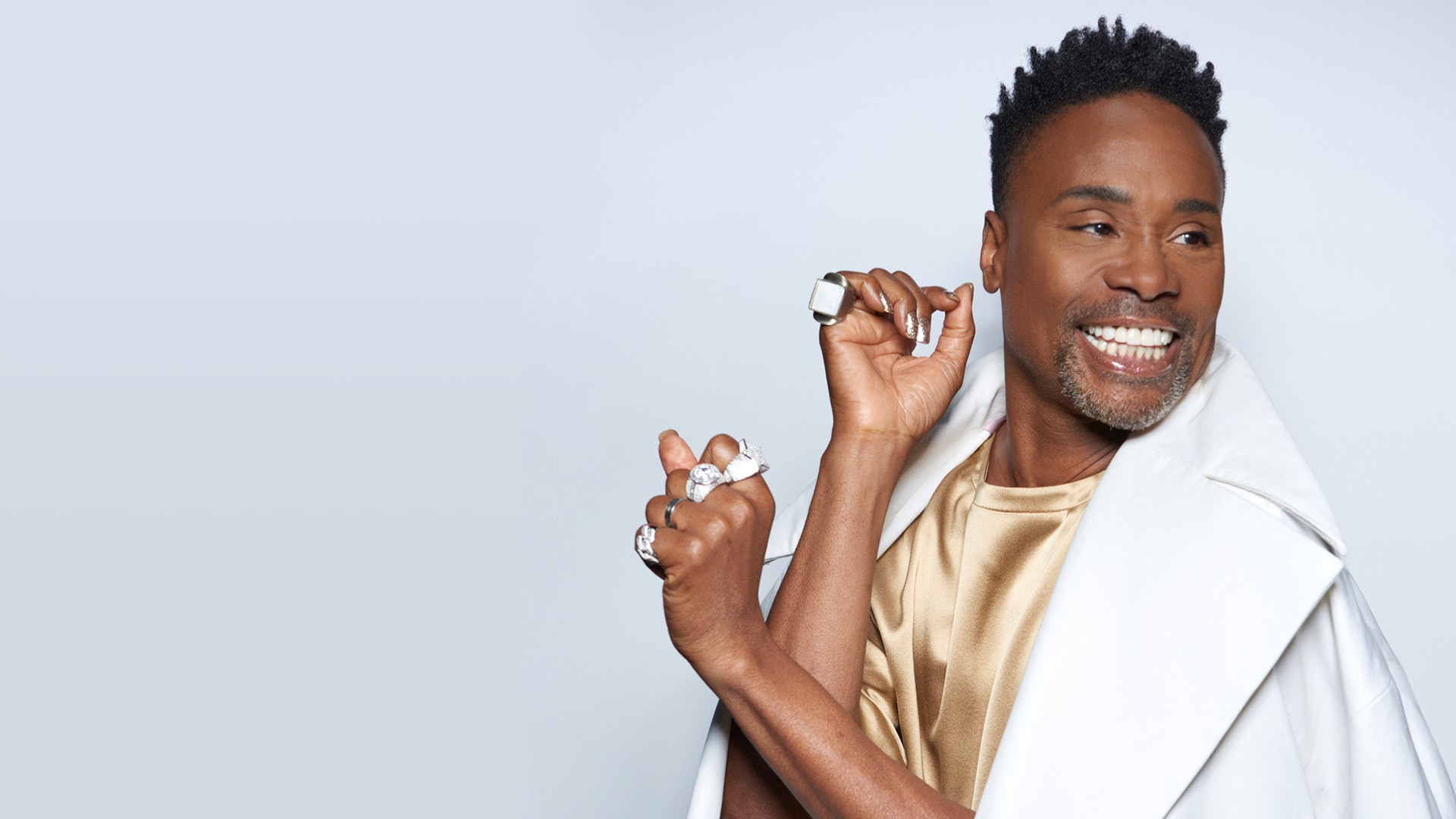Small-business owners are often told to follow their passions, be clear on their purpose, and find a way to stand out.
But when Billy Porter, an Emmy, Grammy, and two-time Tony Award winner, started in show business, people told him not to be his full, unique self. Instead, he was encouraged to be "more masculine" in order to get roles.
At the time, Porter had no idea his full, unique self – and his explosive talent – would break boundaries beyond his wildest dreams.
During a recent episode of Office Hours, Porter explained how he cultivates strength to keep pushing, growing, and learning – making sure he’s grounded before forging further in his career and his new company, Incognegro Productions.
1. Pursue your true purpose.
As a theater student at the Carnegie Mellon University School of Drama in Pittsburgh, Porter studied the classics – Shakespeare, Ibsen, and the Greek tragedies. But he didn't see himself in those stories.
“Our teachers, mentors, the people who love us – and the people who hate us – don’t understand when they see a first of something. We’re all used to following. That’s the natural order,” Porter said. “Never once did anybody look at me and say, ‘Wow, you're so different. You could change the whole language – you could change the whole game. Let's try to cultivate that.’”
It was a picture he'd have to learn to paint himself. Luckily, his training also taught him how to live as an artist. The business of being an artist isn't straightforward; like any industry, it has highs and lows. As artists work tirelessly on their craft, they also work as multifaceted marketers, brand builders, and advocates for themselves. An entrepreneurial spirit can help them thrive.
“It’s about the craft,” Porter said. “Are you an artist or do you want to be a star? Those are two completely separate things. Sometimes a byproduct of being extremely successful creates a space where you may become a celebrity. But it cannot be the reason or the purpose if you’re an artist.”
2. Root for your own story.
In any industry, company, or team, failure is inevitable. That doesn’t mean you shouldn’t “take the leap,” Porter said. Trust that things can work out.
“What are you waiting for? Speak life into yourself: ‘yes I can,’” Porter said. “Failure is the lesson. Failure is the growth. Learn to receive failure as a positive that you can reinvest in yourself to learn something new and apply as you move forward.”
Porter himself hit a road bump when he released an R&B record in 1997. The record deal was a turning point for Porter, who said he spent 25 of years of his career trying to appear "more masculine." After that, he moved to L.A. and joined UCLA’s screenwriting program, which kicked off the next big leg of his career.
"That was the launch of the expansion, the enlargement of my territory – the fact I can and should be at the helm of telling my own stories,” Porter said. “This new generation has that. The world has evolved. Everybody knows their story matters. I’m the last of a generation of people who were taught to be brilliant interpreters of other people’s material.”
3. Let your authenticity evolve.
According to Porter, embracing his full authenticity and knowing his worthiness took time. While it may not have been easy, it’s what catapulted him into becoming a powerful entertainer and advocate for diverse representation on TV, film, and beyond.
“I saw what not being allowed to be your authentic self did to people and artists I loved,” he said.
In 2000 Porter completed the book The Artist’s Way by Julia Cameron, leading him to root his career in being his full self.
“I said to myself in 2000, 'the only thing I can be is my authentic self,'” Porter said. “So no matter where the chips fall, choosing myself is what I’ll be. Let me choose that first, put one foot in front of the other, and take the steps to be the greatest version of myself that I can be.”
Later, in 2010, Porter completed the business version of the book, The Artist's Way at Work: Riding the Dragon, helping further solidify his business strategy. After winning a Tony Award in 2013 for his role as Lola in Kinky Boots, Porter had proved that being himself was the right move.
“Kinky Boots was the major validation of that unknowingly entrepreneurial choice I made,” he said. “I didn’t know it was an entrepreneurial choice until after.”
Porter started to realize his work was about service. His queerness itself was the “service,” he said – not the "liability" people used to say it was.
"People need to see what authenticity is and looks like so they can have the courage,” Porter said. “They need to see what being set free looks like so they can set themselves free and live their best life.”
While the internet might make people instantly famous, Porter notes that artists need to practice their craft daily – regardless of who’s looking, listening, or watching. Continuing to push boundaries, Porter recently launched his own production company, Incognegro Productions, to shed more light on diverse, thoughtful stories.
He succeeded by fighting for his purpose, trusting that his story matters, and evolving into his authenticity despite the hurdles.
“I always dreamed I’d be successful, but I never dreamed that I could do it on my own terms,” Porter said. “I never dreamed that my queerness would be the superpower – that my queerness would be the point. That has been magical.”
This article is part of Office Hours, a series that connects you with entrepreneurs and expert tips for running and growing a business right now. Find their can’t-miss conversations here.

